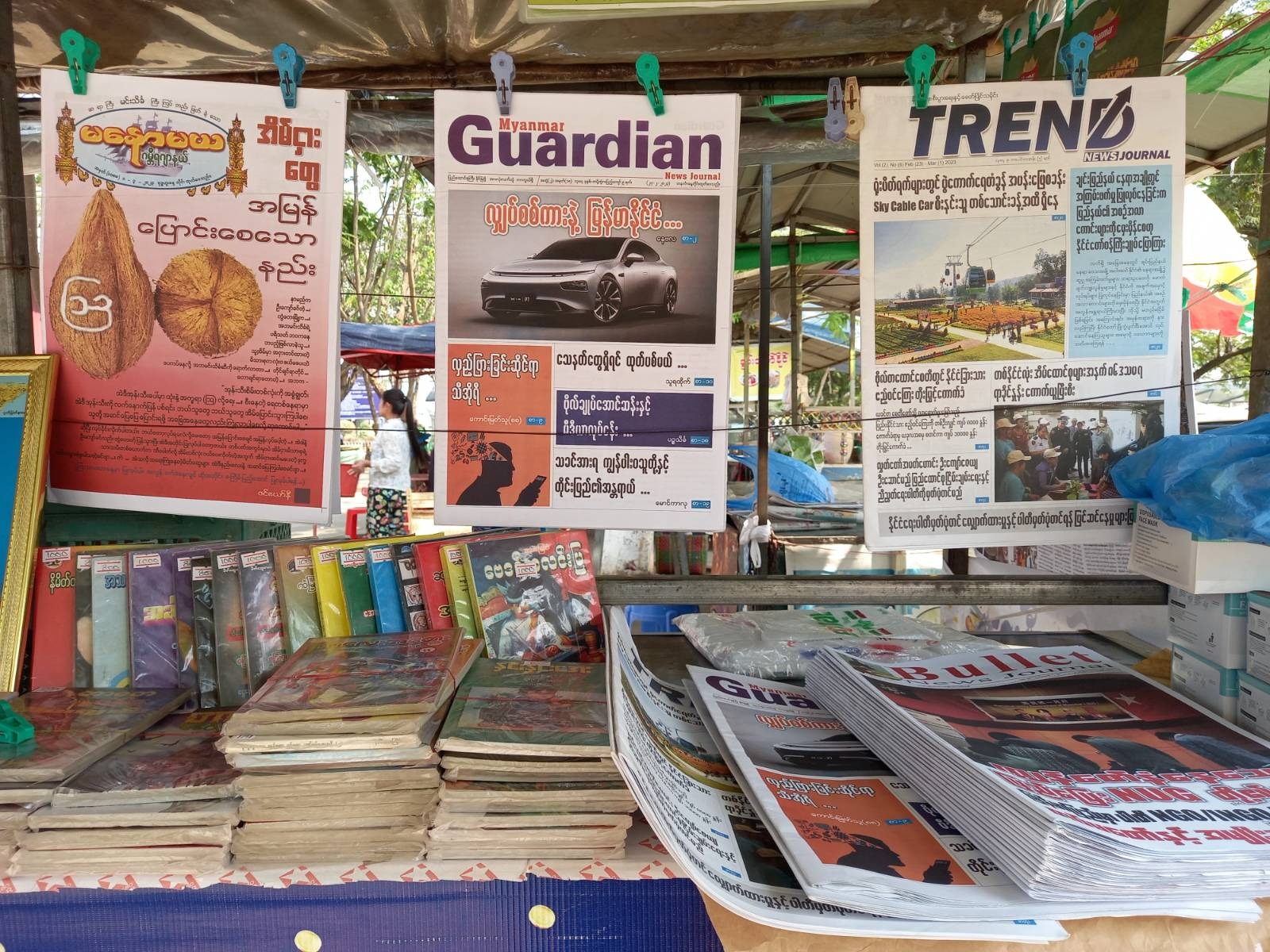U Sonny Swe is a veteran of Myanmar’s media industry, having co-founded the Myanmar Times – at the time the only privately owned newspaper in the country with foreign investment – together with Mr Ross Dunkley.
In 2004, Sonny Swe was sentenced to 14 years’ imprisonment for breaching Myanmar’s censorship laws, and forced to sell his shares in the Myanmar Times.
He was released in 2013, the year after the government abolished pre-publication censorship for print media. He returned briefly to the Myanmar Times, before joining Mizzima and then establishing Frontier Myanmar in 2015, just before that year’s general election, together with Ms Sylvia Saw McKaige.
Where did the idea for Frontier come from?
The moment I got out of prison I wanted to be a publisher again. That’s always been my dream. I believed very strongly that this country needed a high-quality publication and I thought that Frontier could be a window into the country.
But this was 2015 – why a print magazine?
I’m a very print-focused guy, that’s my background. Back then I didn’t know much about digital, so my aim was always a print magazine. Also, there wasn’t a good, in-depth magazine on Myanmar. A lot of people were doing daily newspapers and I thought there was room for a long-form magazine.
Did you have bigger ambitions than a magazine?
Basically, I wanted to have the best newsroom and set up a media empire. Previously I was thinking about radio, about a TV channel, but because of the internet it’s a different game now four years later. The general ambition is still the same – to be the best media organisation in the country – but to get there we are using new techniques, we can’t use the old techniques.
The past four years have been a challenge, with a lot of ups and downs for Frontier, Myanmar’s media industry, and the country. What’s been the biggest lesson for you as publisher of Frontier?
Embrace technology. The trend has changed now. The old-school, ad-based revenue model doesn’t work any more and we need to find different revenue streams. At first I hated technology because it definitely makes life difficult for publishers. But then I realised that instead of complaining about technology, we needed to embrace it and find ways to make it work for us.
For example, we’re working with Google through the Google News Initiative to solve this problem. Most online advertising dollars are now going to Facebook and Google. If we just had the mindset that we hated Google because of that, and didn’t even apply, it would have been different. We’re working in a more collaborative way now with a whole range of organisations, whether it’s on training, or new initiatives or products, or investigative stories.
And the proudest moment?
Every time we can see one of our stories has an impact, whether it’s encouraging the government to change their policy or something else, that is something special. And when we win awards – that’s also pretty cool!
A lot of people say, ‘How can you write the way you do? Why doesn’t the government take action against Frontier?’ What’s your response?
It takes a lot of effort to get to this level. The most important thing is that we don’t misuse our platform to attack individuals or institutions unfairly. We always write with a good intention and proper fact checking. I think the readers can see that, and I think the government sees that.
Why are memberships the future for Frontier?
This is a trend around the world – it’s not like we’re coming up with this on our own. The idea is to generate more revenue from readers while still making sure our content is freely available, even for people who can’t afford to pay for it. To make it work, it’s important to build a community of people who believe in what we do and think it’s important. We believe we have enough loyal readers but engaging with them is a new approach for us. Now we’re listening to what they want, rather than just giving them what we think they’ll want.
The biggest challenge will be changing the mindset of everyone at Frontier – we need to make time for members, to listen to them. Our membership team is already doing that, but we need to make sure everyone within the company shares the same mindset as well. We can’t say for sure memberships are going to be successful for Frontier. But what I like about it is that we’re crafting these tailor-made products and experiences for our readers and that’s a beautiful thing. It’s very different for us, it’s out of our comfort zone, but I think that’s good – even if it’s very challenging.
Can other Myanmar media organisations focus on memberships?
It depends on the type of content that they’re doing. I think there are about four or five different media organisations that would potentially be suited to a membership model. It has to be high-quality, unique content. These days, anyone can set up a Facebook page and be a publisher. You need to distinguish yourself from everyone else that’s out there, you can’t expect people to pay for memberships if you’re just doing the same old thing. So for Frontier, what makes us unique is our in-depth reporting.
Why does independent media matter for Myanmar?
Myanmar is very unique. Private media development wasn’t that deeply rooted and has been difficult to sustain. Most publications are being bought or influenced by businesspeople or other interests. It’s very important for us to have a free hand and report the way we see fit – it’s very important for this country’s democratic transition.







